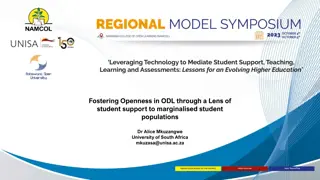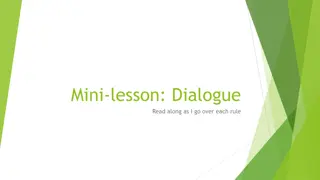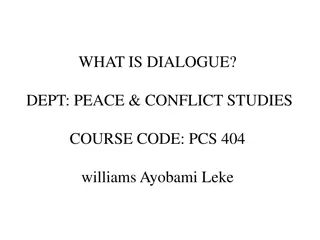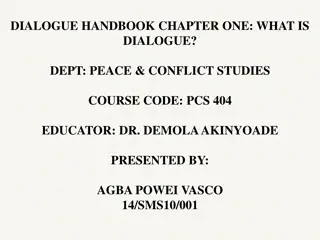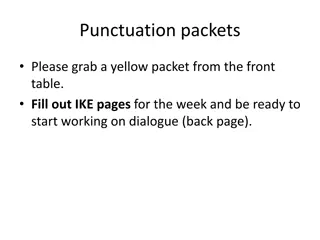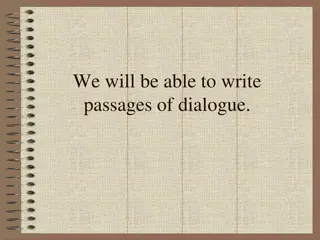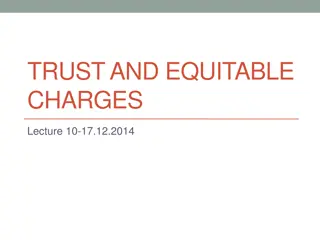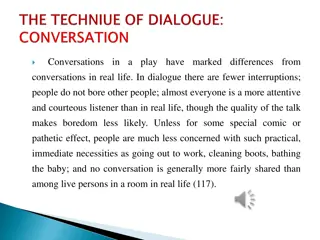Principles of Dialogue: Trust, Honesty, Openness
Dialogue is a special form of communication where participants actively seek to create mutual understanding and insight. The principles of dialogue, including trust, honesty, and openness, play a crucial role in building strong relationships and effective communication.
Uploaded on Mar 10, 2025 | 2 Views
Download Presentation

Please find below an Image/Link to download the presentation.
The content on the website is provided AS IS for your information and personal use only. It may not be sold, licensed, or shared on other websites without obtaining consent from the author.If you encounter any issues during the download, it is possible that the publisher has removed the file from their server.
You are allowed to download the files provided on this website for personal or commercial use, subject to the condition that they are used lawfully. All files are the property of their respective owners.
The content on the website is provided AS IS for your information and personal use only. It may not be sold, licensed, or shared on other websites without obtaining consent from the author.
E N D
Presentation Transcript
DIALOGUE Presented by: Vulasi Baribenem 14/SMS10/004
TABLE OF CONTENT What is dialogue Principles of dialogue Nature of dialogue Dialogue versus dialogue
What is dialogue? Most words are derived from Greek or Latin and dialogue is one of such words. etymologically, dialogue is gotten from two Greek words; Dia which means through and logos which means the word when merged together dialogos means through the word
What is dialogue? Dialogue although a form of communication is quite different from other forms of communication such as conversation or discussion. Thus dialogue can be defined as a special form of communication, in which participants seek to actively create greater mutual understanding and deeper insight .
Principles of dialogue The principles of dialogue include: Trust Honesty Openness Equality
Principles of dialogue; trust Trust defined simply means a firm belief in the reliability, or ability of someone or something. Trust promotes communication between people and allows people to express their views. Dialogue helps build trust because while one party listens the other feels heard. Listening attentively to the other party speaking gives rise to trust and courage to open up. Parties are inclined to ask exploratory questions.
Principles of Dialogue; Honesty Honesty other wise known as truth is about being authentic in who you are and what you represent. Honesty fosters openness and trust while dishonesty promotes mistrust Honesty is required in communication to let the recipient gain insights into the needs and values that underlie the viewpoints.
Principles of Dialogue; Openness Openness is a two way street. It involves being honest about what you are and open to others suggestions. It simply means open to have a paradigm shift but not necessarily accepting the suggestions. Being open is sequential to fostering trust between participants Communication driven by inquiry and curiosity signals openness and introduces trust into the conversation.
Principles of Dialogue; Equality In dialogue there is aa belief that everyone has something to say irrespective of status, gender and ethnic background. In dialogue everyone is equal They may differ in status and power, but all voices have the same right to be heard. The weaker parties might be compensated by being shown more consideration in the course of communication.
Nature of dialogue Dialogue is not merely a technical skill and a collection of tools. It is a way of existing. In order to dialogue effectively dialogue must come from the heart. It also applies when guiding others in conducting a dialogue. It is important to believe that dialogue is a good idea and an appropriate form of exchange. Participants should also be able to communicate dialogically or have the desire to do so. The nature of dialogue thus includes; the basic value, the dialogue frame of mind and dialogical practices.
Nature Of Dialogue; Basic Values In what do I believe? What is my view of human nature? For what do I want to use dialogue and why? These are relevant questions to ask yourself in the effort to develop your own basic dialogical values. The root of the matter is to become aware of how the dialogue is linked to your own values. The human being has potential for both good and evil. Although we are not always good in our deeds, it is possible to stimulate this.
Nature Of Dialogue; Basic Values Dialogue is considered an option towards choosing to act more reasonably rather than violating, imposing by force and destroying one another. As individuals we might be convinced of our answer and consider it to be the truth. However, standing on the ground of dialogical values, it must be accepted that somebody else can have his answer as the one and only. By using dialogue to challenge our own ingrained truths and gain insights into those of others, together we are expanding truth to bring it closer to our shared reality.
Nature of Dialogue; Dialogue Frame of Mind Do we want to fight and win? Or do we want to enter into a dialogue and try to understand? A dialogical frame of mind entails a willingness to be open, exploratory and dialogical towards others, even in the face of profound disagreement. It is a personal choice, and it hinges on whether we have a genuine motivation to take part in a dialogue. Only when the dialogue is truly desired will it work in practice.
Nature of dialogue; dialogical practice As regards our action, we also face a fundamental choice. What do we want to achieve through our communication? And how do we want to communicate in practice? When confronting viewpoints that are diametrically opposed to our own, we have the tendency to persuade the other that he is wrong. We discuss, debate, argue and negotiate or we even manipulate. All these forms of communication are, on the face of it, at odds with conducting a dialogue.
Dialogue vs Discussion Below are some distinctions between the both. Dialogue discussion We try to learn We try to win We try to understand We try to persuade with arguments We listen to become wiser We listen to identify flaws and errors We try to express our own views and values as clearly as possible We defend our position We tolerate each other s We have become more alike, or we differences have adapted Nobody loses, both par ties win The loser surrenders


